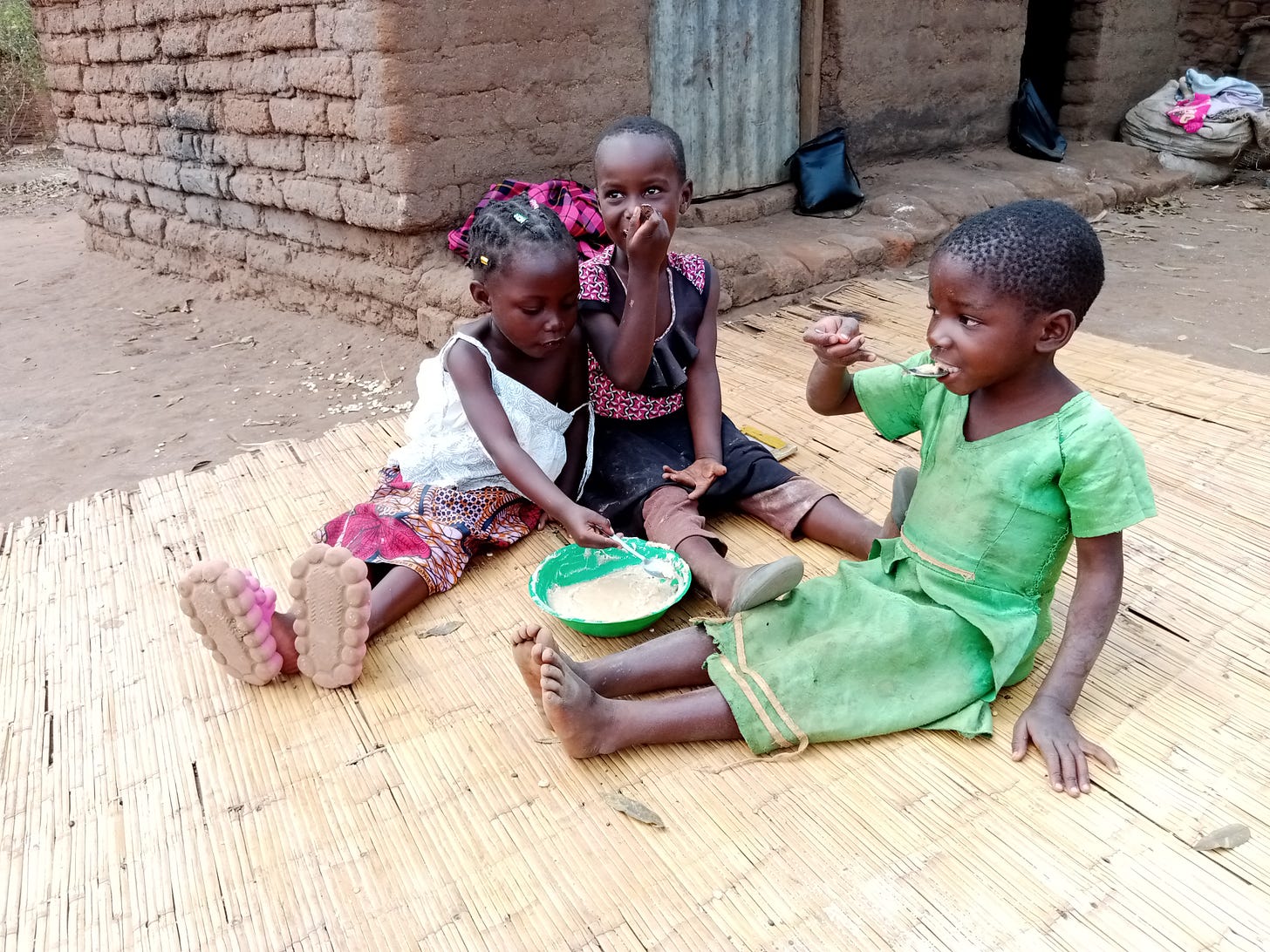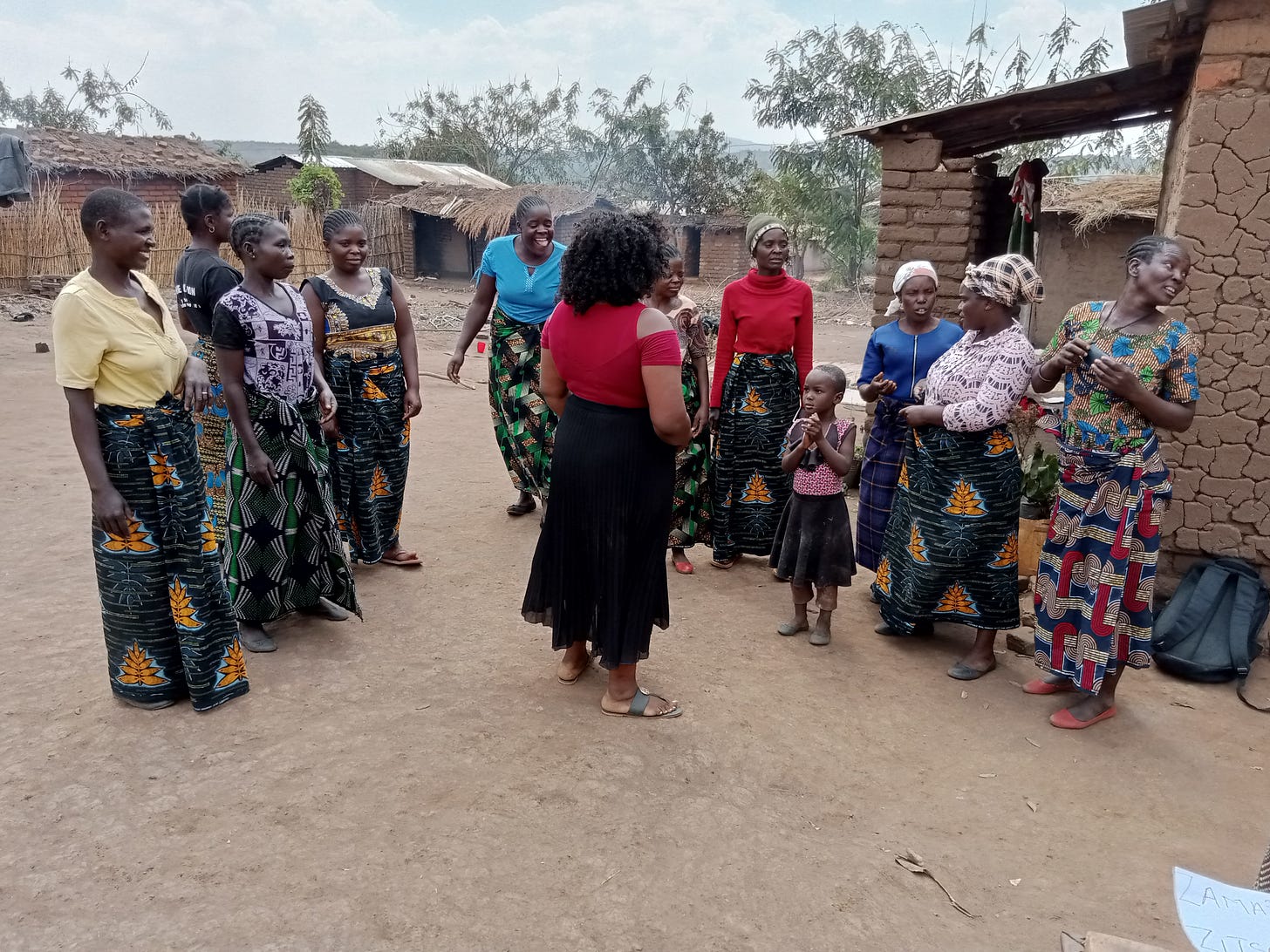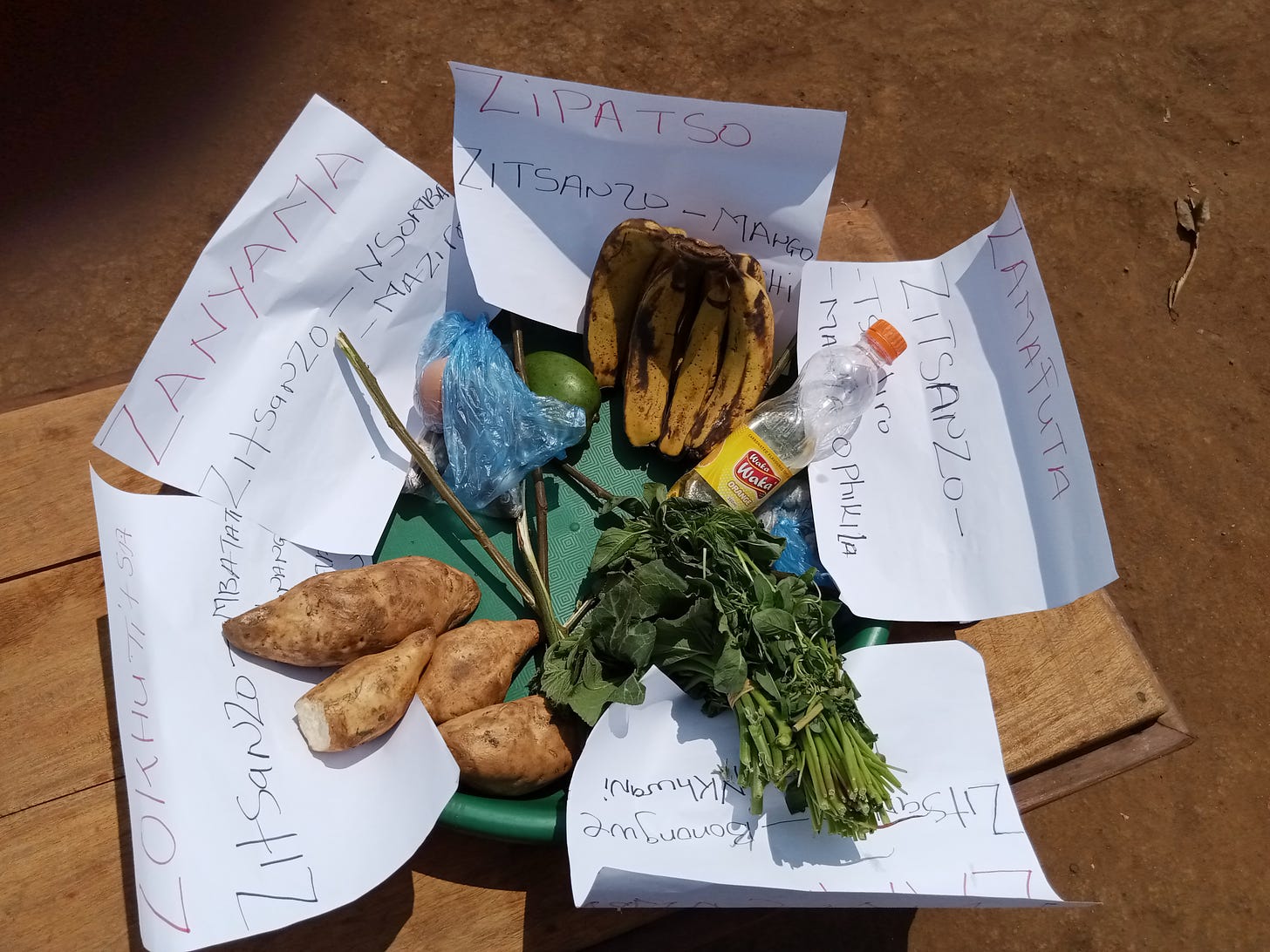Rural Malawi Women Find Empowerment Through Savings, Nutrition
In a country where nearly 4 million people lack access to safe water and poverty remains a pressing issue, the story of these women in Dowa offers a beacon of hope.
DOWA, Malawi - Despite challenges like transportation difficulties and loan repayment issues, a quiet revolution is transforming lives in Malawi's Dowa district. Village Savings and Loan (VSL) groups and nutrition education programs are empowering communities and offering a beacon of hope in a region plagued by poverty and lack of access to basic necessities, writes Winston Mwale.
Sakala, a resident of Basiketi village in Traditional Authority Mkukula, beams with pride as she shows off her small piggery.
"I now have seven pigs, which I bought through our VSL group," she says.
"This program has changed my family's life."
The mother of three is a member of Tikondane, a women's group formed in 2001 to foster independence through business and village savings.
What started as a simple savings initiative has blossomed into a catalyst for change, touching every aspect of these women's lives.
"Our homes have changed," Sakala explains.
"Some of us are keeping goats, others have built houses, while some can pay their children's school fees."
But the transformation goes beyond just economic empowerment.
Thanks to nutrition education provided by the Rhema Institute for Development (RHID), a local NGO, these women are now equipped with knowledge that's improving their families' health.
"Previously, we carried our malnourished children to the clinic," Sakala recalls.
"Now, we can prepare all six food groups for our children. We even make Likuni phala (a nutrient-rich porridge) ourselves."

Telina Kabango, a community nutritionist who trains the villagers, has witnessed this transformation firsthand.
"When we came, we taught them how to make Likuni phala properly and about the six food groups essential in our daily lives," she says.
Kabango and her colleagues teach the women the correct measurements and preparation methods, ensuring they can provide nutritious meals for their families.
"We see that the women are interested. They can differentiate between what we taught them and what they used to know, even the taste is different," she adds with a smile.
The impact of this dual approach—economic empowerment through VSL and improved nutrition knowledge—is evident in the reduced hospital visits and healthier children in the community.
For Sakala, the benefits extend even further. She's diversified her income streams, venturing into brick-making and even acting as a land agent.
"I buy and sell land," she explains.
"If you want a piece of land, I can find it for you."
The success of programs like this one in Dowa is a testament to the work of organizations like RHID.
Established in 2005, RHID aims to reduce poverty, mitigate the impact of HIV/AIDS, and provide care and support to those affected in Malawi and beyond.
With a strategic plan focusing on education, water and sanitation, nutrition, HIV/AIDS prevention, and women and children's empowerment, RHID is tackling Malawi's challenges on multiple fronts.
However, challenges remain. Kabango points out that transportation difficulties, such as a lack of bicycles, can hinder their work, especially during the rainy season.
Additionally, group dynamics can sometimes lead to issues with loan repayments.
Yet, the overall impact is undeniable. As Sakala puts it, "We thank our 'alangizi' (advisors) for teaching us. This is a big help for our families."
In a country where nearly 4 million people lack access to safe water and poverty remains a pressing issue, the story of these women in Dowa offers a beacon of hope.
It shows that with the right support and knowledge, communities can lift themselves out of poverty, one savings group at a time.
Innocent Semu, Executive Director of the Rhema Institute for Development, stated, "We are training communities to focus on nutritious foods, encouraging them to eat three meals a day. Our goal is to combat hunger and malnutrition effectively."
"Additionally, we empower communities with knowledge on how to provide sustainable food options for their families. The primary objective of our nutrition program is to eliminate malnutrition and hunger in the communities we serve."
As the sun sets over Basiketi village, Sakala tends to her pigs, her eyes bright with plans for the future.
For her and many others like her, the journey from savings to success is not just a dream, but a reality in the making.





